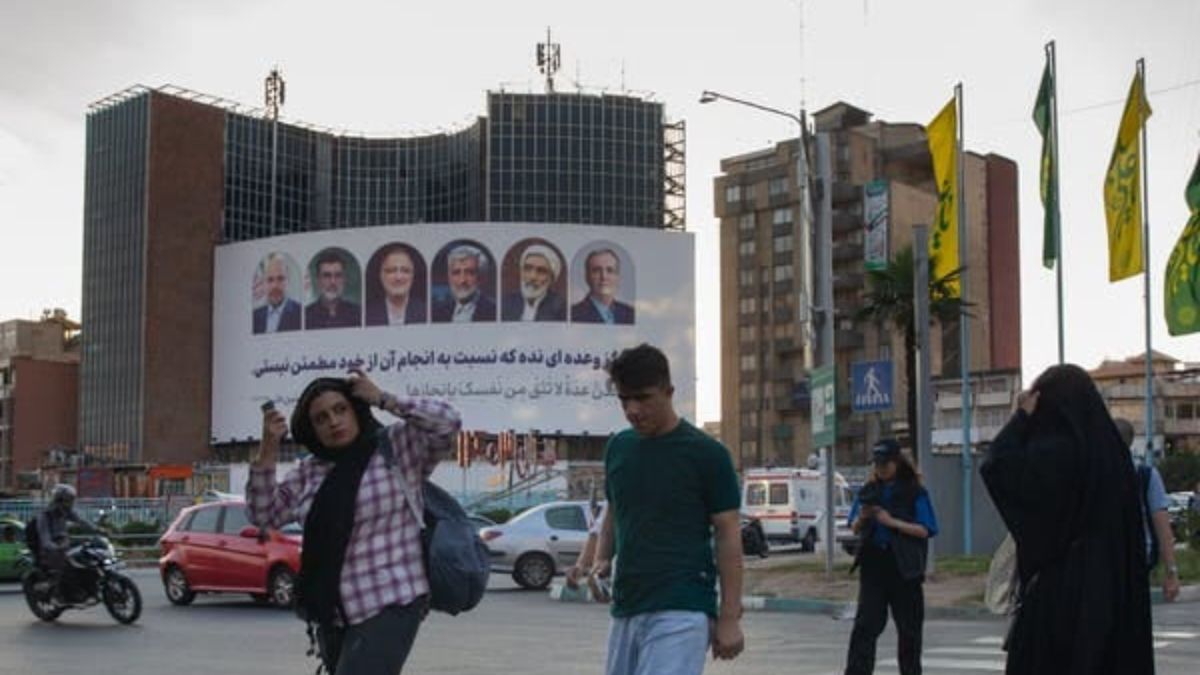After Raisi died in Plane crash, a special election is being held to replace the late president
The presidential election in Iran has been scheduled for June 28th, Thursday, a year ahead of the original date following the tragic passing of former President Ebrahim Raisi in a helicopter crash in May.
As the Supreme Leader of Iran, Ali Khamenei wields ultimate authority over all matters in the country. While elected presidents and parliament members shape domestic policies, their influence is limited, particularly in foreign affairs. The Supreme Leader retains final decision-making power in all significant national and international issues.
Importance of Elections in a ‘Theocracy’
In a country like Iran, where religion plays a significant role and there is supreme leadership, it is essential to have a strong democratic presence to maintain stability and govern the people. Iran holds regular elections for the President, parliamentary seats, and councils, typically on a four-year basis.
In Iran’s democratic setting, control over candidates and leaders is evident, with conservative candidates often prevailing due to the country’s leading ideology of theocracy. This results in limited opportunities for reformist leaders to succeed.
Country’s Issues
Credit-Arash Khamooshi for The New York Times
The prevailing issues in the country are predominantly focused on the economic sanctions imposed by the United States and the ongoing struggle for women’s rights. The Iranian government is frequently characterized as ineffective and resistant to meaningful reform by many of its citizens. The economy has been severely impacted by the stringent American sanctions, leading to significant hardship for the population.
The theocratic methods of governance have resulted in widespread discord among the citizens, primarily due to the enforcement of strict religious doctrines and the mistreatment of women. Rampant corruption within the government has exacerbated the economic challenges faced by the country, resulting in a sluggish economy and leaving many individuals struggling with soaring inflation and high unemployment rates.
Election Transparency & The Candidates
The process of vetting election candidates in this particular election involves a thorough evaluation by a guardian council comprising 12 members of Jurists and clerics. Out of the initial 80 candidates, only 6 have been selected, resulting in the dismissal of seven women, a former president, government officials, lawmakers, and ministers. This significant reduction underscores the rigorous nature of the vetting process and its impact on the pool of potential candidates.
5 of the candidates are conservatives and 1 is a reformative leader.
Mohammad Bagher Ghalibaf is one of the candidates who has served as speaker since 2020 and as a mayor of Teheran from 2005 to 2017. He maintains close ties with IRGC, a powerful political force in Iran; he has an astonishing history in the military. As a conservative, he performed a harsh role in student protests while being a police chief in Iran.
Another candidate, Saeed Jalili seals his image as a conservative by critiquing Iran’s international negotiations over its nuclear program. He is part of an advisory body of the supreme leader and also contributes to the committee that resolves conflict between the guardian council and parliament. He is expected to continue the current governance methods of mandatory hijab rules and crackdown on anti-government protests.
Amirhossein Hashemi the vice president under Raisi, will continue present government policies.
The only reformist in race, Pezeshkian is a heart surgeon, involved in campaigns around Iranian women, youths, and ethnic minorities. He served as vice president to the reformist leader from 2016 to 2020. He supported the nuclear deal of 2015 and a handful of support to the Mahasa Amini case and protests.
5th Candidate Pourmohammadi is a cleric and conservative. He had a significant involvement in the 1988 prosecution of political prisoners. Served as Justice minister under President Rouhani and interior minister to President Ahmadinejad.
The last contestant, Zakani, was the mayor of Teheran starting from 2020. He also served as a member of parliament from 2004 to 2016 and then from 2020 to 2021. Although he initially aimed for a presidential position, he was disqualified by the guardian council in 2021. Nevertheless, he withdrew from the race to support Raisi. Zakani pledges to provide healthcare for women and the elderly and to rejuvenate the Iranian currency.
The future
Credit-Arash Khamooshi for The New York Times
The Iranian elections lack transparency as the candidates are selected by the committee of guardians and the process is heavily influenced by the supreme leader. Consequently, these elections do not meet the standards of human rights organizations or Western democracies. Given these circumstances, it becomes increasingly important to carefully select the most righteous candidate from the limited options available.
The election results are expected to be announced on June 30th after all the votes are counted. If neither candidate receives a majority, the top two candidates will compete in a runoff election on July 5th.

1 Comment
Несомненно важные новости мира fashion.
Все новости всемирных подуимов.
Модные дома, бренды, высокая мода.
Самое приятное место для трендовых людей.
https://modavgorode.ru